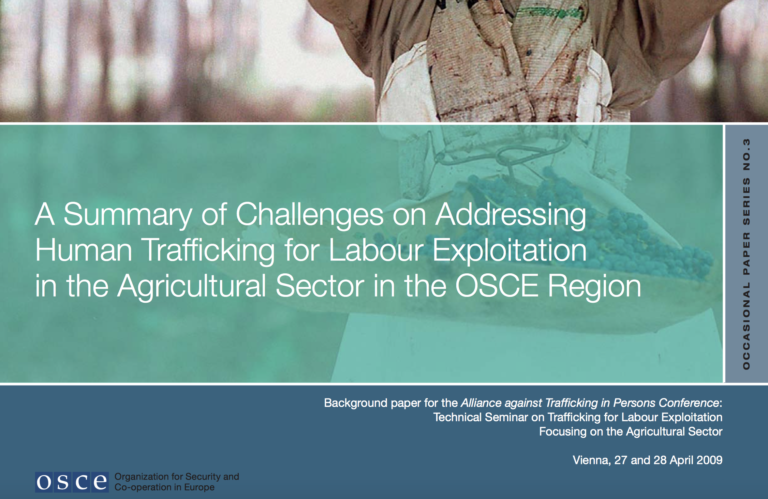This Occasional Paper presents an analysis of labour trafficking in agriculture, which, according to the International Labour Organization (ILO), employs over one billion people around the world. Agriculture is the second largest employment sector, especially for women and youth. This thorough analysis of the current challenges within the agricultural sector aims to assist participating States, policymakers and non-governmental organizations (NGOs) to identify the structural issues and deficits of this sector that cause or exacerbate worker’s vulnerability, in order to better address them in a systemic way. It sheds light on a sector in which workers are commonly exploited, but are often out of sight.

